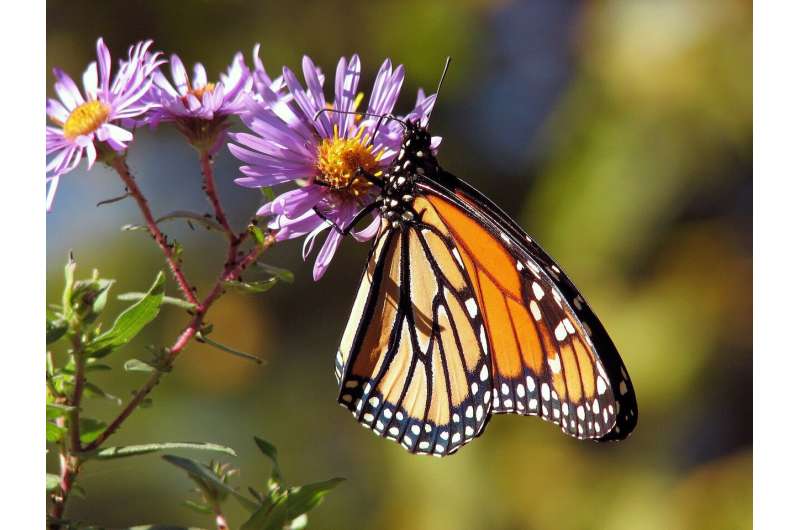Credit: CC0 Public Domain
A new report published by The Wildlife Trusts and authored by a University of Sussex Professor sets out examples of how we can halt insect decline, while asking people, in every part of society, to become 'insect champions'.
Reversing the decline of insects cites examples of farmers, communities, councils and charities that are boosting insect populations—and proving that it can be done.
The report comes at a critical time. There is ongoing evidence for insect declines and the future of insects—and all life that depends on them—hangs in the balance as trade deals threaten to increase the use of insect-harming pesticides.
Furthermore, the Agriculture Bill is progressing through Parliament, presenting a unique opportunity to ensure farmers pursue insect-friendly farming methods.
Dave Goulson, Professor of Biology at Sussex, was lead author of the report. He said: "If we get it right for insects, we get it right for everything else. Insects are the canaries in the coal mine—their collapse is an alarm bell that we must not ignore. Action is needed from every section of society—we all need to change this together."
The Wildlife Trusts are calling on the Government to reverse the decline of insects by:
- Setting an ambitious pesticide reduction target, as good as, if not better than, the EU's proposed target to reduce by 50% the overall use of—and risk from—chemical pesticides by 2030
- No weakening of UK pesticide standards through future trade deals
- Support for farmers to adopt insect-friendly farming practices
Craig Bennett, chief executive of The Wildlife Trusts said: "In my lifetime 41% of wildlife species in UK have suffered strong or moderate decreases in their numbers and insects have suffered most. This has had a huge effect on the rest of the natural world. The vital role that insects perform is undermined and everything that depends on them suffers, from hedgehogs to nightingales, wildflowers to wetlands.
"Current trade deals threaten to make a bad situation worse. It's up to the Government to ensure we maintain our current environmental standards, not let them slip and jeopardise the wildlife we have left. The Agriculture Bill is a golden opportunity to set high standards in law and make sure insect-friendly farming practices are rewarded."
The Wildlife Trusts believe that reversing the decline of insects is possible if:
- A network of nature-rich areas is created covering at least 30% of the UK, and legally binding targets are set for nature's recovery which are monitored and enforced
- Local councils prioritise green recovery and create more nature-rich places where insects can thrive and make cities, towns and parishes pesticide-free
- Everyone steps up to become an insect champion
Today's publication follows the 'Insect declines and why they matter' report, also authored by Prof Goulson, which was published by the Wildlife Trusts last year. The 2019 study examined mounting evidence that insect populations are close to collapse and concluded that "the consequences are clear; if insect declines are not halted, terrestrial and freshwater ecosystems will collapse, with profound consequences for human wellbeing."
Provided by University of Sussex
























